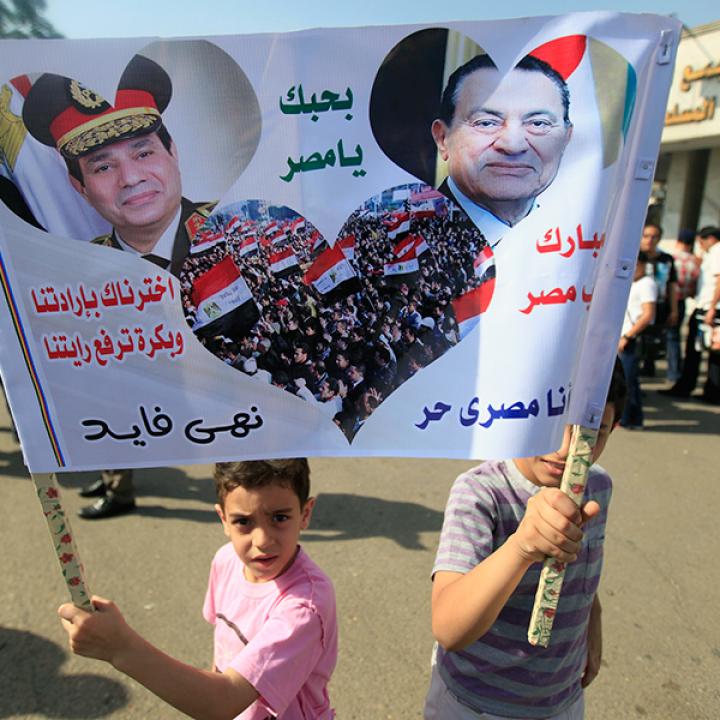
- Policy Analysis
- Articles & Op-Eds
Mubarak Nostalgia Is the Winning Strategy in Egyptian Politics Right Now

In a political environment that seeks a return to the status quo ante, some Egyptians are embracing a Mubarak-era strategy of leveraging patronage networks and governmental connections for victory.
In 2007, Suleiman al-Hout had a problem. Local officials in the Suez Canal city of Ismailia refused to license the food-cart from which he sold kebda, or fried liver, a common Egyptian street food. At first he asked a relative who sat on Ismailia's local council to intercede on his behalf, but to no avail. So Hout took matters into his own hands. He walked into the local headquarters of then-President Hosni Mubarak's National Democratic Party (NDP) with one simple question: "How can I vote for you?" Within two years, Hout was a card-carrying NDP activist with excellent government and business connections, which he put to good use by "solving problems" for others. He frequently acted as an intermediary between local businessmen and the poor, between his neighbors and the electricity ministry, and, of course, between food-cart owners and the registration bureau. If your mother-in-law needed special medical care, he could get you into the top government-run hospital. If you had a problem at a nearby police station, he knew the officers. If there was a street fight, his "men" -- about 30-40 toughs, depending on the evening -- took care of it.
Hout is precisely the kind of "youth" that Egypt's July 2013 counterrevolution has brought to the fore: a security-state enthusiast who believes that his local patronage network entitles him to a political position...
Read the full version of this excerpt on the New Republic website.
New Republic



